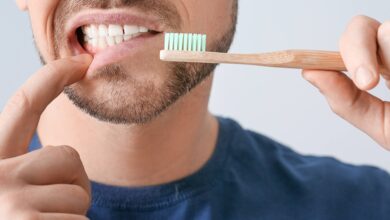How to Avoid Sleep While Studying

Feeling drowsy and struggling to keep your eyes open while studying? You’re not alone. Sleepiness can negatively impact study sessions. Here are some effective ways to avoid falling asleep when you need to study.
Create an Alert Environment
Make your study area conductive to wakefulness.
- Study in a bright spot. Open curtains and turn on all lights.
- Keep the room cool. Low temperatures stimulate alertness.
- Play energizing music quietly in the background.
- Sit upright at a desk instead of lounging.
An energizing environment keeps you engaged and awake.
Take Regular Breaks
Don’t study for too long without short breaks.
- Use the Pomodoro technique – study for 25 minutes, break 5 minutes.
- Stretch, walk around, or snack during breaks.
- Breaks refresh your mind and body, boosting wakefulness.
- Change subjects or activities after each break.
Strategic breaks prevent you from getting sleepy from long study sessions.
Avoid Big Meals
A large meal before studying can make you feel sleepy.
- Eat small, light meals and healthy snacks instead.
- Foods like nuts, yogurt and fresh fruits provide energy.
- Stay hydrated with water and drinks like green tea.
- Avoid alcohol, fatty or sugary foods that cause drowsiness.
Eating the right foods gives you energy for alert studying.
Try Caffeine
Caffeine temporarily promotes wakefulness.
- Drink a cup of coffee or tea before studying.
- Take occasional sips during long study sessions.
- Use caffeine pills only when extremely drowsy.
- Don’t overdo it – excessive caffeine causes anxiety.
A moderate amount of caffeine boosts energy levels without side effects.
Sleep Well Beforehand
Being well-rested makes you less prone to sleepiness.
- Establish consistent sleep and wake times.
- Make sure your sleeping area is dark, cool and quiet.
- Avoid screens before bed and get 7-9 hours of sleep.
- Nap early in the day for 20-30 minutes maximum.
Good sleep hygiene reduces daytime drowsiness.
Staying awake when studying takes effort. Make your study space alertness-friendly, watch what you eat, take smart breaks and get adequate rest. Don’t fight your body – if you’re extremely sleep deprived, take a proper nap first. With some planning, you can avoid drifting off, even during marathon study sessions.



